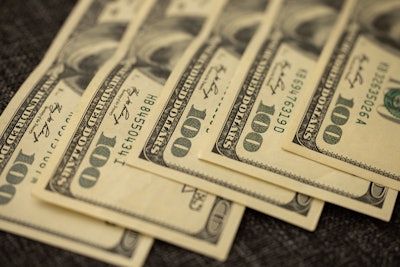
As the NCAA's interim guidance on name, image and likeness nears its one-year anniversary, colleges and universities are starting to debut a new position: Director of NIL Engagement.
According to Houston-based law Vinson & Elkins LLP, there are five things every NIL department should keep in mind.
1. No improper inducements or extra benefits
No prospective student-athlete can receive an “improper inducement” during recruitment, and no current student-athlete can receive an “extra benefit.” “Improper inducements” are compensation contingent on enrollment at a particular institution, and “extra benefits” are compensation for athletic participation or achievement (i.e., “pay-for-play”). Examples of extra benefits or inducements include: cost-free goods and services, discounts not available to the general student population, preferential treatment based on a student’s reputation as a student-athlete, and payment for athletic participation.
2. Heed restrictions on marketing
The NCAA’s restrictions on marketing still apply — that is, athletics department staff are prohibited from marketing student-athletes’ athletics abilities and reputations to agents or professional sports teams or organizations, subject to limited exceptions. NIL department staff should carefully weigh whether assisting athletes in NIL pursuits leads into the impermissible conduct of promoting players’ athletic abilities.
3. Abide by State and Federal Legislation
Colleges and universities should continue to comply with applicable state and federal legislation, which supersedes any conflicting NCAA policies. Although there is presently no federal NIL law and not all states have active NIL laws, institutions will need to monitor new legislation and revisit and update their policies as necessary.
4. Monitor NIL collectives and booster activity
NIL departments should pay close attention to the dramatic rise of NIL collectives — businesses that facilitate and provide NIL opportunities to student-athletes. These entities have accelerated the launch of the NIL market by providing a centralized hub for boosters, companies, and other interested parties to contribute financial resources to athletes of a specific school. On May 9, 2022, the NCAA Division I Council Working Group issued guidance addressing compliance concerns pertaining to NIL collectives and school-affiliated boosters. At minimum, the guidance makes clear that colleges and universities must monitor the actions of NIL collectives to ensure compliance with NCAA policies.
5. Consider reporting potential NIL violations to the NCAA
If a school becomes aware of a serious NIL violation or potential NIL violation, the school should consider reporting the conduct to the NCAA. The NCAA will likely pay close attention to schools that have hired an individual in an NIL oversight role, and thus, universities should continually evaluate any questionable NIL opportunities its NIL department or athletes pursue. To avoid the threat of sanctions, NIL departments should prioritize training and education for student-athletes on their rights and restrictions under the current NIL landscape.
Further, NIL departments should consider engaging competent counsel to evaluate the NIL department’s role for compliance with applicable NCAA laws and current and potential state or federal legislation.





































